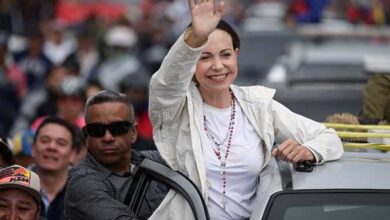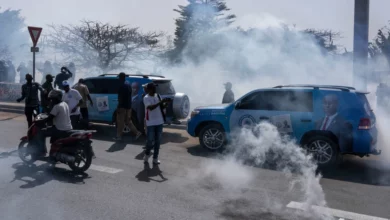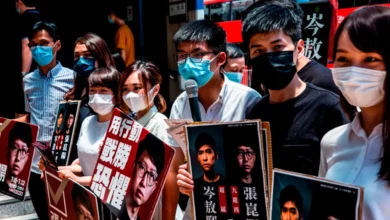Controversy has erupted over the Egyptian army’s plan to hold early parliamentary elections this year. Proponents of an extended transitional period argue that early elections will derail the path of the Egyptian revolution and stall the process of democratic transformation. Indeed, the army’s plan is far from perfect, but should not be so easily dismissed. Early elections may have serious advantages that democracy advocates should consider if they are serious about completing the mission of the Egyptian revolution. Sticking to the army’s timetable may offer a way out of the legitimacy crisis that haunts the Egyptian revolution, one defined by the inability of revolutionary forces to build a national consensus around constitutional and political reform.
Events over the last month have shown that the transition to democracy in Egypt will be far from smooth. Absent the support of the armed forces, revolutionary groups are incapable of realizing any vision for managing the transition. At the same time, the military seeks to transfer power as soon as possible without taking any major steps in the interim period (i.e. supervising the drafting of a new constitution, guaranteeing public freedoms, and reconstructing Egypt’s security agencies).
Amidst this stalemate, Mubarak’s oligarchy – who remain in state bodies, elected councils and the private sector – has started regrouping to assert their control. Their efforts are bolstered by the media’s rising antagonism toward the protesters and emphasis on the need to restore stability. The “stability discourse” is helping the oligarchs achieve their main objective: pushing the military to instate de facto martial law or a new state of emergency, rather than overseeing a successful transition process.
If the oligarchs have their way, the army will suspend all measures that constrain its power, in the name of protecting the revolution. On the ground, the oligarchs have begun reestablishing their local authority by acting as staunch advocates of the Supreme Council of the Armed Forces (SCAF) and insisting that the council is Egypt’s legitimate ruling authority. One need only look to recent sectarian battles in Atfeeh to see how oligarchs are trying to mediate between the SCAF and parties on the ground.
Extending Egypt’s transitional period means affording these remnants of the old regime a chance to entrench themselves through new political organizations and front groups or coalitions. An early election, however, can push these oligarchs into an open playing field, away from the protection of the military and what is left of the security agencies. The oligarchs would desperately like to avoid such a scenario. Early elections may also give revolutionary groups a chance to regain momentum around a new objective: the liquidation of National Democratic Party remnants. The longer the interim period lasts, the smaller the chance that a popular consensus around this objective can be built.
Moreover, the longer Egypt remains in transition the more the military will gain popular support by promoting the ideals of unity and stability. The stability discourse threatens ongoing efforts by the labor movement and progressive elements of Egypt’s middle class to organize themselves.
Meanwhile, Egypt’s popular movement is already beginning to fragment. The Muslim Brotherhood, likely prompted by the SCAF, has announced its support for the constitutional amendments. Several youth groups have backed the new government’s call to end the wave of protests in order to restore stability and “defeat the counter-revolution.” And many Egyptians have accepted the return of the police to the streets, without calling for an investigation into the abuses the police has committed against protesters.
Detractors argue that early elections will favor the Muslim Brotherhood and remnants of the National Democratic Party, who are better organized than any other potential contenders, but this claim exaggerates the strength of both parties. The Muslim Brotherhood cannot risk dominating Egypt’s political scene in such a polarized context (assuming they have the ability to dominate, which is questionable in the first place). As for the NDP, the assumption that it can achieve significant electoral gains at this stage ignores historical precedents. At its peak in 2005, when the NDP controlled the media, security apparatus and received generous financial support, the party could not win more than 35 percent of the seats. The NDP secured a parliamentary majority only when independent parliamentarians were later incorporated into the party. This process is unlikely to repeat itself in the upcoming elections, however, given the NDP’s tarnished reputation and the fact that independents no longer stand to gain from joining the party’s ranks.
To deal a major blow to the oligarchy, the revolutionaries must form of a broad democratic coalition that should include forces as diverse as the Muslim Brotherhood and the radical left. Unlike in 2005, the Brotherhood now has a vested interest in coalition politics. This arrangement may change in the future if the Brotherhood gains legal status as an independent political party or chooses to ally itself with elements of the old regime by agreeing not to contest certain seats. But for now, a strong show of unity is needed to carry this revolution forward. It’s time for pro-democracy advocates to avoid the “Tahrir trap” of bombarding the army with endless demands. Without a democratically elected government, it’s the army not the street who will decide which demands go through and which ones don’t. Meanwhile, the counter-revolution will continue to creep forward.
Amr Abdulrahman is a doctoral student at Essex University. He writes for El-Bosla magazine.




